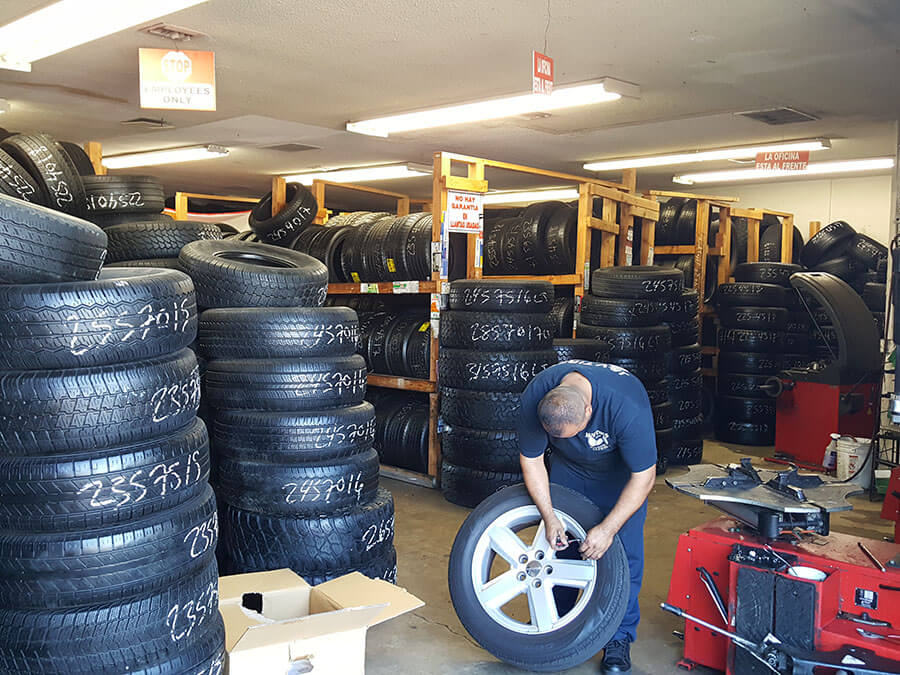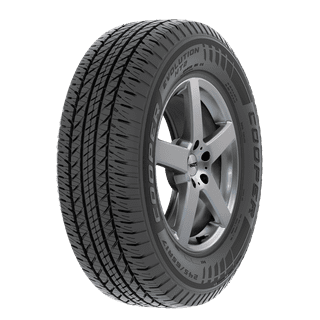Tire Service: The Impact of Weather Conditions
When it concerns making sure ideal efficiency and security when driving, comprehending the impact of climate condition on tire service is important. From scorching warmth to icy roadways, each weather condition aspect can dramatically influence tire functionality and overall driving experience. By diving into the results of differing weather condition problems on tires, drivers can obtain valuable insights that might improve their lorry's performance and durability. In this conversation, we will discover the complex connection between weather condition conditions and tire service, losing light on the importance of weather-specific tire upkeep practices and factors to consider.
Heat and Tire Performance
When revealed to high temperatures, tires experience adjustments in efficiency that can dramatically influence car security and handling. The warm generated from long term driving or warm weather conditions triggers the tire rubber to soften, leading to minimized tread life and raised wear.
In addition, heats can accelerate the procedure of tire aging, causing the rubber to deteriorate quicker. This can lead to splits, bulges, and other types of damages that endanger the architectural honesty of the tire. To reduce the effects of warm on tire performance, drivers must regularly check their tire stress, rotate tires to make certain even use, and evaluate for any type of indicators of damages. Furthermore, making use of tires specifically created to hold up against heats can assist preserve ideal efficiency and safety when traveling.
Winter Impacts
Cold climate conditions can have a significant impact on tire performance and safety. As temperature levels decline, tire rubber can harden, resulting in reduced traction on icy or snow-covered roadways. In cool weather, tires might additionally lose atmospheric pressure a lot more swiftly, which can impact dealing with and fuel performance. In addition, chilly temperatures can create tire sidewalls to tense, raising the danger of damages from pits or various other roadway hazards.
To alleviate the effects of winter on tires, it is important to consistently check tire stress and inflate them to the producer's recommended levels. Utilizing winter season or all-season tires designed for winter conditions can likewise boost traction and grasp on icy or snowy roadways - tire shop morris. Proper tire maintenance, including normal inspections for wear and damages, becomes much more critical during chillier months to make sure ideal efficiency and safety
Rainy Conditions Influence
Throughout stormy conditions, tire efficiency and safety can be significantly affected by the damp roadway surfaces and decreased presence. The tread pattern of tires plays a vital duty in preserving traction on damp roadways. Tires with worn-out footsteps are extra prone to hydroplaning, where a layer of water accumulates in between the roadway and the tire surface, causing loss of traction. To fight this, drivers should frequently inspect their tires for ample step deepness and take into consideration buying tires especially designed discount tires morris il for wet problems.

Snow and Tire Safety
When driving in snowy conditions, having the appropriate tires can make a considerable distinction in security and performance. Winter season tires are developed with unique rubber substances and tread patterns to give far better grip on snow and ice contrasted to all-season tires.
Along with using winter tires, it is essential to ensure they are properly blown up. Cold weather condition can create tire stress to drop, affecting grip and handling (morris tire and alignment). Frequently examining and keeping the correct tire pressure is essential for optimal efficiency in snowy problems

Weather-Related Tire Upkeep
When encountered with different climate condition, appropriate tire maintenance comes to be a crucial aspect of car safety and security and performance. Weather-related tire maintenance incorporates a series of techniques targeted at making sure optimal tire feature and longevity in different weather condition circumstances. One vital element of weather-related tire upkeep is tire pressure law. Changing temperature levels can cause tire pressure to vary, influencing grip and fuel effectiveness. Frequently inspecting and adjusting tire pressure according to producer recommendations is crucial for risk-free driving in altering weather conditions. In addition, tire walk deepness plays a substantial duty in dealing with different weather aspects. Tires with sufficient tread deepness supply better hold on damp or icy roadways, minimizing the threat of skidding or hydroplaning. Examining tire walk regularly and changing tires when walk wear gets to a particular depth is vital for preserving traction and security in unfavorable weather condition. By prioritizing weather-related tire upkeep, drivers can boost security, enhance car efficiency, and extend the life expectancy of their tires.
Verdict
Finally, weather have a significant impact on tire efficiency and security. From warmth affecting tire pressure and put on to winter reducing grip, it is vital to consider the weather when keeping and utilizing tires. Wet problems can lower grip and cause hydroplaning, while snow can boost the threat of crashes if tires are not correctly outfitted. Weather-related tire upkeep is vital in ensuring optimal performance and safety and security on the roads.
In this conversation, we will check out the detailed connection between weather condition conditions and tire service, losing light on the relevance of weather-specific tire maintenance methods and considerations.
